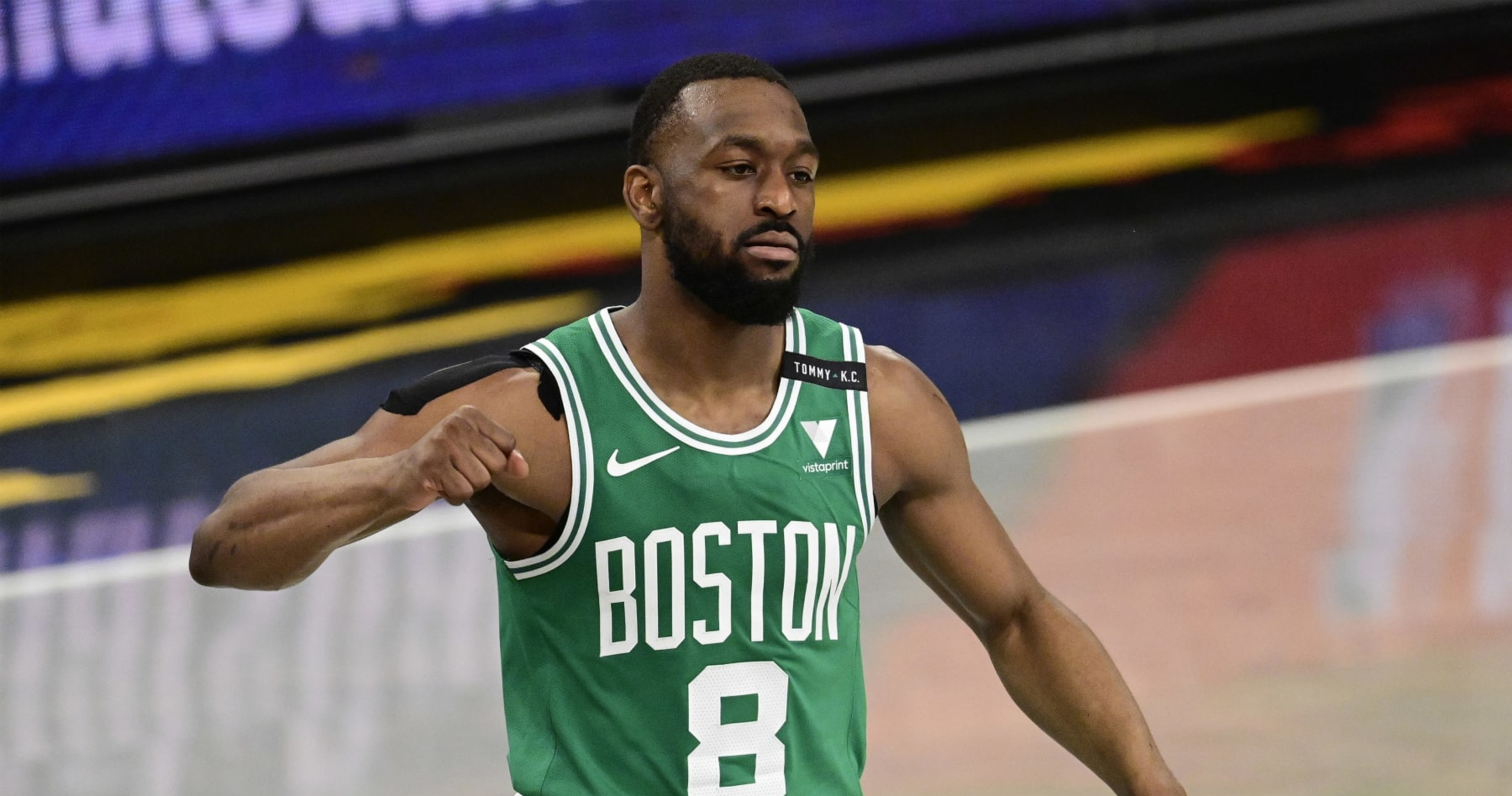Sports
NBA Stars Who Flopped After Changing Teams – Bleacher Report

Many of the biggest stars in NBA history spent their entire careers with the same organization. It’s a storybook-type arc that often enhances the legacy of memorable players.
For every Tim Duncan and Kobe Bryant, though, there are numerous stars who changed basketball homes.
In some cases, that transition isn’t always a good one.
Carmelo Anthony, Isaiah Thomas and Kemba Walker are among the most recent examples. The following list, organized chronologically and focused on the past 15 years, is a review of top players whose performance fell sharply after switching teams.
Early in the 2008-09 season, the Detroit Pistons ended an era. They dealt franchise legend Chauncey Billups—a perennial All-Star guard who played a key role in winning an NBA title—for Allen Iverson.
The worst part is that, even in the moment, the trade felt unnecessary. Hindsight only holds up that perception.
Iverson, whose 26.4 points per game in 2007-08 finished third in the league, managed only 17.4 points on 41.6 percent shooting in 54 games. Although the Pistons made the playoffs at 39-43, their six-year streak of Eastern Conference Finals appearance ended. LeBron James and the Cleveland Cavaliers immediately swept Detroit.
Since his contract expired after that disappointing year, Iverson did not return to the Pistons.
Blake Griffin also merited consideration, but he enjoyed one outstanding year on the Pistons before his production dropped.
Ben Gordon, however, just had a rough tenure in Detroit.
In five seasons with the Chicago Bulls, he averaged 18.5 points and never shot below 41.5 percent from three. Gordon won a Sixth Man of the Year honor and helped Chicago reach the playoffs in four years.
Gordon inked a five-year contract but ended up playing only three seasons with the Pistons. He plunged to 12.4 points per game, and Detroit—which ultimately traded him to the Charlotte Bobcats—maxed out at 30 wins. Gordon even called his time in Detroit a failure.
During a seven-season run with the Los Angeles Lakers, Lamar Odom won a pair of NBA championships and brought home the Sixth Man of the Year trophy in 2010-11.
After that award-winning year, however, his relationship with the team soured because of his inclusion in a vetoed blockbuster for Chris Paul. Odom requested a trade, and the Lakers shipped him to the Dallas Mavericks—who actually had just swept L.A. on the way to a title.
The change was not positive for Odom.
He scored 14.4 points per game on 53.0 percent shooting during his final season with the Lakers but trudged to 6.6 points with 35.2 mark in Dallas. Odom, who’d dealt with a mentally taxing offseason in which a cousin was murdered and was a passenger in an accident that killed a teenage cyclist, only played one more year in the NBA.
“That trade from the Lakers basically ended my career and purpose,” he later said.
Years of trade speculation finally became a reality in 2017 when the New York Knicks sent Carmelo Anthony to the Oklahoma City Thunder.
Coming off his eighth straight All-Star season, Melo still had plenty of supporters. He’d netted 22.4 points per game in the previous year and looked like a decent fit alongside Russell Westbrook and Paul George in OKC, especially if he embraced a complementary role.
Unfortunately for the Thunder, he turned in the worst season of his professional career.
Carmelo shot 40.4 percent from the floor and managed 16.2 points per night. Worse yet, his production dipped in the playoffs with 11.8 points on 37.5 percent shooting in a six-game series loss to the Utah Jazz.
Oklahoma City traded him to the Atlanta Hawks in the offseason.
Isaiah Thomas went through a roller coaster of a career.
Following stints with the Sacramento Kings and Phoenix Suns, he took a superstar turn with the Boston Celtics. Thomas secured his first-ever All-Star nod in 2015-16 and averaged 28.9 points—the third-highest mark in the league—during the next season.
If anybody told you that Thomas would play for seven different teams over the next half-decade, you probably wouldn’t have believed them. And for good reason, too.
But a hip issue and a trade request altered his career.
The injury sidelined Thomas in the 2017 playoffs, and Cleveland made him the centerpiece of the trade for Kyrie Irving in the offseason. He appeared in just 15 games for the Cavaliers, notching 14.7 points per game on a measly 36.1 percent clip before getting sent to the Lakers.
Thomas never regained his peak form and bounced around the NBA until not playing in 2022-23.
Was he a star? Well, maybe not. Lance Stephenson made a name for himself thanks to his tenacious defense and goofy antics—you know, blowing in LeBron’s ear—on the Indiana Pacers from 2010-14.
Stephenson wasn’t far away, though; he’d tallied 13.8 points, 7.2 rebounds and 4.6 assists per game in 2013-14.
But he headed the wrong direction with the Charlotte Hornets.
During his lone season in Charlotte, Stephenson mustered 8.2 points per game on 37.6 percent shooting. He buried 35.2 percent of his threes in 2013-14 with Indiana but hit a mind-numbing 17.1 percent on the Hornets.
Charlotte quickly moved in a different direction and sent him to the Los Angeles Clippers in the offseason.
Gordon Hayward certainly fits the mold, but a gruesome leg injury in his debut with Boston complicates the conversation.
Kemba Walker, who endured two injury-plagued seasons on the Celtics—one alongside Hayward—at least averaged 19.9 points on a modest 42.3 clip. The bigger problem is what happened after Boston shipped him to the Knicks for the 2021-22 campaign.
Walker dropped to 11.6 points per game on 40.3 percent shooting, and he was a defensive liability. He eventually fell out of the rotation before New York shut him down for the season.
During the ensuing offseason, the Knicks packaged Walker and Jalen Duren’s draft rights in a trade with the Pistons.









